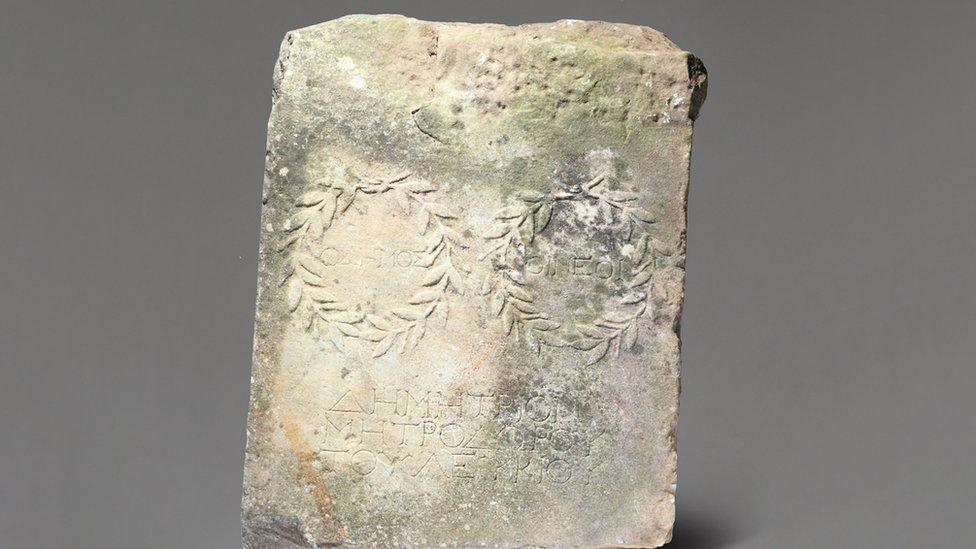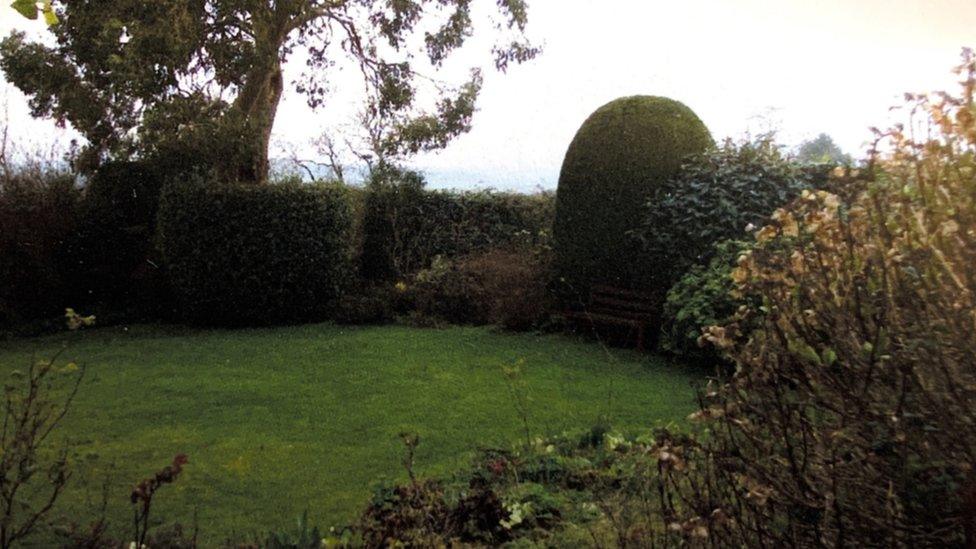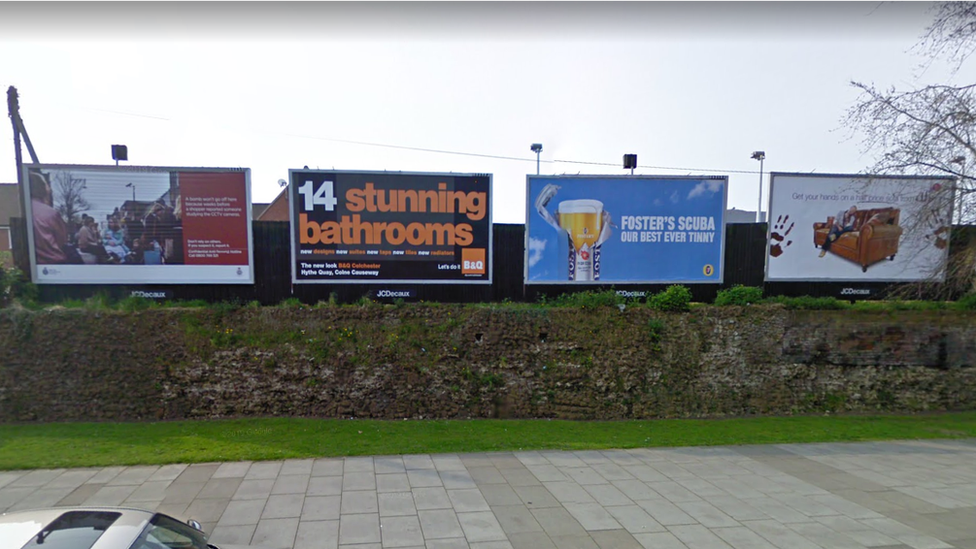Horse mounting block is 2,000-year-old Roman relic
- Published

An archaeologist has identified the slab as dating to the 2nd century AD with probable origins to Greece or Asia Minor.
Auctioneers want to track down the builders of a house where a 2,000-year-old Roman relic was found.
The Roman slab dates from the 2nd Century AD but had been used as a horse mounting block for 10 years before the owner realised its significance.
Salisbury firm Woolley and Wallis are appealing to the public to help them work out how it arrived in a Wiltshire garden.
Antiquities specialist Will Hobbs said it was a "complete mystery."
The marble slab was first unearthed from the rockery of the garden of a bungalow in Whiteparish, near Salisbury, 20 years ago and then used in the owner's stable.
One day the owner noticed a laurel wreath carved into its surface.
An archaeologist then identified it as dating to the 2nd Century AD with probable origins to Greece or Asia Minor.
'Wealthy aristocrats'
Mr Hobbs said: "Artefacts of this type often came into England as the result of grand tours in the late 18th and 19th century, when wealthy aristocrats would tour Europe learning about classical art and culture.
"We assume that is how it entered the UK, but what is a complete mystery is how it ended up in a domestic garden, and that's where we'd like the public's help."

The marble slab was unearthed in the rockery of the garden of a bungalow in Whiteparish, near Salisbury
The bungalow on Common Road was one of several built in the mid-1960s. The auctioneers are hoping someone who lived in the area at the time, or who worked on the construction, might remember the origins of some of the rubble used.
Mr Hobbs said the slab could have come from the demolition of one of the nearby mansion houses., external
He said: "There are several possibilities as to where the stone might have originated.
"Both Cowesfield House and Broxmore House were very close to Whiteparish and were demolished in 1949 after having been requisitioned by the army during the war.
"But we also know that the house at what is now Paulton's Park was destroyed by fire in 1963 and so possibly rubble from there was reused at building sites in the area shortly afterwards."
The marble slab is being sold at auction on Tuesday 16 February with a pre-sale estimate of £10,000 to 15,000.
Related topics
- Published13 July 2020

- Published2 July 2020

- Published13 September 2010